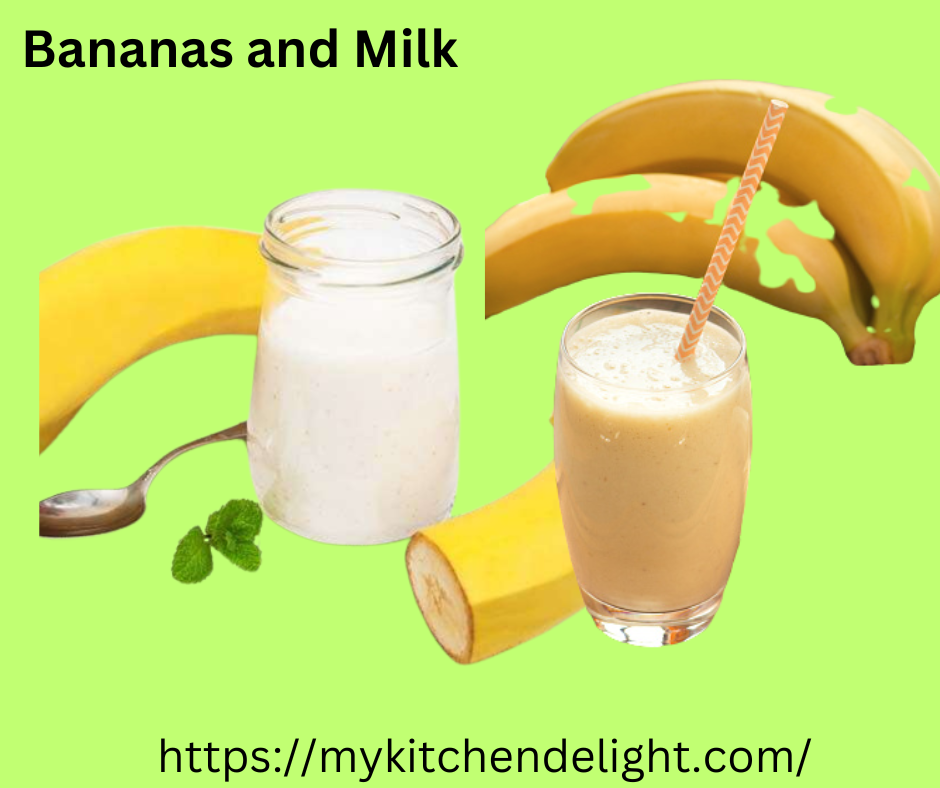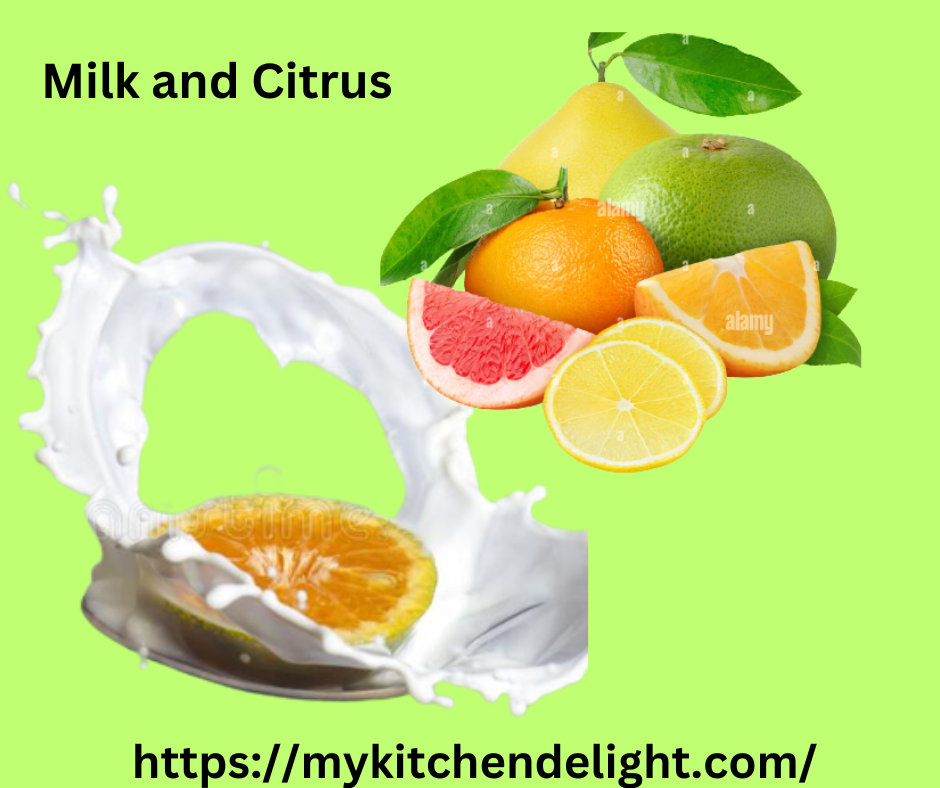
Yes, there are some food combinations that can be potentially dangerous for the body. Consuming certain food combinations may cause discomfort, digestive issues, or even serious health problems. For example, combining starchy carbohydrates with proteins can be difficult for the body to digest, leading to bloating, gas, and other digestive issues. Eating high amounts of sugar with fatty foods can also lead to insulin resistance and other health problems.
Additionally, some food combinations can interfere with the absorption of certain nutrients. For example, consuming calcium-rich foods with foods high in oxalates, such as spinach, can prevent the body from absorbing calcium properly. It’s important to have a balanced and varied diet, but it’s also important to be mindful of the food combinations you consume. If you have concerns about your diet or specific food combinations, it’s always a good idea to consult a healthcare professional or registered dietitian. The following are a couple of those combos.

1- Mint and Carbonated Drinks
Consuming mint and carbonated drinks together can be harmful to one’s health. While mint is known for its cooling properties and refreshing taste, carbonated drinks are popular for their bubbly and sweet taste. However, combining the two can cause adverse effects on the body.
Carbonated drinks are loaded with sugar, high fructose corn syrup, or artificial sweeteners, which can lead to weight gain, obesity, and an increased risk of diabetes. These drinks are also high in calories and can cause tooth decay and erosion of tooth enamel. The carbonation in these drinks can cause bloating, stomach discomfort, and acid reflux.
On the other hand, mint is a natural herb that is used to treat various digestive problems, such as bloating, gas, and indigestion. It can also help to freshen the breath and soothe a sore throat. However, consuming mint in large amounts can cause adverse effects, such as heartburn, allergic reactions, and diarrhea.
When mint and carbonated drinks are consumed together, the carbonation in the drink can cause the mint to release its oils faster, leading to an intense and prolonged minty taste. This can lead to overconsumption of mint, which can cause digestive problems, such as heartburn and acid reflux.
In addition, the combination of mint and carbonated drinks can cause the stomach to produce more acid, leading to an increased risk of acid reflux and heartburn. This can be particularly harmful to people who suffer from gastroesophageal reflux disease (GERD).
In conclusion, consuming mint and carbonated drinks together can be harmful to one’s health. Both have their benefits when consumed in moderation, but their combination can cause adverse effects on the body, particularly the digestive system. Therefore, it is advisable to avoid this combo and opt for healthier alternatives, such as water, fresh fruit juice, or herbal teas.

- Bananas and Milk
There is a common belief that mixing bananas and milk can be unhealthy for the body. While there is no scientific evidence to support this claim, it is possible that the combination could cause digestive discomfort in some individuals. When we consume milk and bananas together, the mixture can create a heavy and slow-to-digest combination in the stomach. This can cause bloating, gas, and indigestion, particularly in people who are lactose intolerant or have sensitive stomachs.
Moreover, some people may believe that the combination of milk and bananas is unhealthy because of their high sugar content. Bananas are naturally high in sugar, and when combined with the lactose in milk, it can lead to a spike in blood sugar levels.
In conclusion, while there is no conclusive evidence that mixing bananas and milk is inherently unhealthy, some people may experience discomfort after consuming this combination. It is important to listen to your body and avoid foods that cause you digestive distress.

- Meat and Starches
Eating a combination of meat and starches can be harmful to your health. This is because the meat is high in protein and takes longer to digest, while starches like potatoes and bread are high in carbohydrates and break down quickly. When you eat these foods together, it can lead to digestive issues and other health problems such as weight gain, high blood sugar levels, and an increased risk of heart disease. To maintain a healthy diet, it’s important to balance your intake of protein, carbohydrates, and other nutrients, and to avoid overconsumption of any one type of food.

There is some evidence to suggest that combining limes with certain types of cough medicines can potentially be harmful to health.
Limes are a type of citrus fruit that is rich in vitamin C and other antioxidants. While they are generally considered a healthy addition to a balanced diet, there are some concerns about consuming limes in combination with certain types of medications, including cough medicines.
Cough medicines often contain ingredients such as dextromethorphan (DXM), which is a cough suppressant, and guaifenesin, which is an expectorant. These medications work by either suppressing the cough reflex or loosening mucus in the airways to make it easier to cough up.
When limes are consumed in combination with DXM, it can potentially lead to a dangerous interaction known as serotonin syndrome. This is a rare but serious condition that occurs when there is too much serotonin in the body. Symptoms of serotonin syndrome can include agitation, confusion, rapid heartbeat, high blood pressure, fever, sweating, muscle rigidity, and seizures. In severe cases, serotonin syndrome can be life-threatening.
Additionally, consuming limes with cough medicines that contain guaifenesin can potentially cause stomach upset, nausea, and vomiting. This is because limes are acidic and can irritate the lining of the stomach, particularly in sensitive individuals.
Overall, while limes are generally considered a healthy addition to a balanced diet, it is important to be cautious about consuming them in combination with certain types of medications, including cough medicines. If you are taking cough medicine and are unsure about whether it is safe to consume limes, it is important to speak with a healthcare professional for advice.

- Milk and Citrus
There is some evidence to suggest that combining milk and citrus can potentially be dangerous for some individuals, particularly those who have a sensitivity or allergy to either of these foods.
When milk and citrus are consumed together, the acid in the citrus can cause the proteins in the milk to curdle in the stomach. This can lead to digestive issues such as bloating, gas, and stomach upset. Additionally, the combination of milk and citrus may reduce the absorption of certain nutrients, such as calcium and iron, which can lead to deficiencies over time.
For individuals who are lactose intolerant, consuming milk in any form can cause uncomfortable digestive symptoms such as abdominal pain, bloating, gas, and diarrhea. Consuming citrus with milk may exacerbate these symptoms and cause further discomfort.
Similarly, some individuals may have a citrus allergy or sensitivity, which can cause a range of symptoms such as hives, itching, swelling, and difficulty breathing. Consuming citrus with milk can potentially trigger an allergic reaction in susceptible individuals.
Overall, while milk and citrus may offer health benefits when consumed separately, the combination of the two can potentially be dangerous for some individuals. It is important to listen to your body and speak to a healthcare professional if you have any concerns about consuming milk or citrus, particularly if you have a known sensitivity or allergy to either of these foods.

.
There is no scientific evidence to suggest that consuming oatmeal and orange juice together is harmful to health. Oatmeal is a nutritious whole grain that is rich in fiber, protein, vitamins, and minerals. It is a great source of complex carbohydrates that provide sustained energy, and it can help to lower cholesterol levels, improve digestion, and promote satiety.
Orange juice is a good source of vitamin C, potassium, and other antioxidants that can support immune function, improve skin health, and reduce the risk of chronic diseases such as heart disease and cancer.
While some people may experience digestive discomfort when consuming certain foods together, such as high-fiber foods like oatmeal with acidic foods like orange juice, this is not harmful to health and can usually be managed by spacing out meals or making small dietary adjustments.
In general, oatmeal and orange juice can be a healthy and delicious combination as part of a balanced diet, and there is no need to avoid consuming them together unless you have a specific health condition or food intolerance that requires you to do so.

